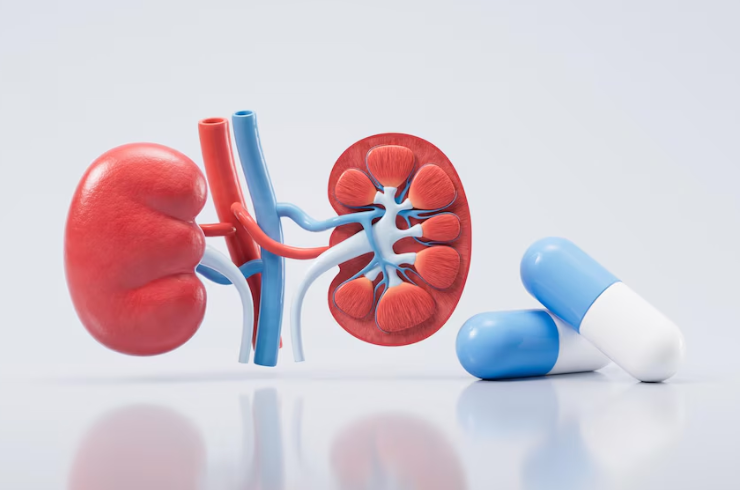
Hypertension-related kidney disease occurs when high blood pressure (hypertension) leads to damage in the kidneys. High blood pressure can damage the blood vessels in the kidneys, impairing their ability to filter waste and excess fluids from the blood. Over time, this can result in chronic kidney disease (CKD), where kidney function gradually declines.
Swelling (Edema): Damage to the kidneys can lead to fluid retention, causing swelling in the legs, ankles, feet, and sometimes around the eyes.
Increased Urination: Patients may experience a need to urinate more frequently, particularly at night (nocturia).
Protein in the Urine (Proteinuria): High blood pressure can cause the kidneys to leak protein into the urine, leading to frothy or foamy urine.
Fatigue: Reduced kidney function can lead to a buildup of toxins and impurities in the blood, causing fatigue and general weakness.
High Blood Pressure: While high blood pressure can cause kidney damage, kidney damage can also further increase blood pressure, creating a vicious cycle.
Difficulty Concentrating: Anemia, a common complication of kidney disease, can lead to difficulty concentrating and mental fatigue.
Blood Pressure Control: Controlling blood pressure is crucial to preventing or slowing the progression of kidney damage. This can be achieved through lifestyle changes and medications.
Healthy Diet: A diet low in salt, rich in fruits and vegetables, and moderate in protein can help manage blood pressure and protect kidney function.
Regular Exercise: Physical activity can help lower blood pressure and improve overall health, reducing the risk of further kidney damage.
Avoiding Smoking: Smoking can worsen kidney disease and increase the risk of cardiovascular complications. Quitting smoking is essential for protecting kidney health.
Medications: Doctors may prescribe medications to control blood pressure and protect the kidneys, such as ACE inhibitors or angiotensin II receptor blockers (ARBs).
Regular Monitoring: Regular check-ups and monitoring of kidney function and blood pressure are vital to managing hypertension-related kidney disease effectively.
Hypertension-related kidney disease is a serious condition that requires careful management. Recognizing the symptoms early and making necessary lifestyle changes, along with following medical advice, can significantly improve outcomes and slow the progression of kidney damage. If you have high blood pressure or symptoms of kidney disease, consult with your healthcare provider for a comprehensive evaluation and personalized treatment plan.

Leading Renal Care: Expertise and Compassion at Dr. Virinder’s Kidney Clinic and Dialysis Centre. Dedicated to personalized kidney health solutions, ensuring comfort and confidence in every step of your journey to better renal wellness.